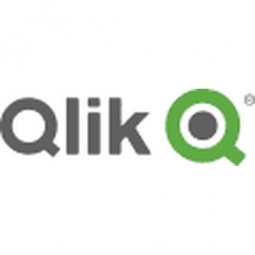下载PDF
Increasing marketing efficiency and optimizing lead scoring with Qlik AutoML
技术
- 分析与建模 - 机器学习
- 分析与建模 - 预测分析
适用行业
- Professional Service
适用功能
- 销售与市场营销
用例
- 补货预测
- 质量预测分析
服务
- 数据科学服务
挑战
Naylor Association Solutions was facing a challenge in their marketing-sales processes, particularly in lead scoring and qualification. The company was using a CMS that required account executives to fill out nearly 30 different data fields, which were then used by the marketing automation platform for scoring and qualification. This process was time-consuming and frustrating for the salespeople, who viewed many of the fields as unnecessary. On the other hand, the marketing team couldn't provide a better justification for the data other than they needed it for their processes.
关于客户
Naylor Association Solutions is a company that empowers professional associations to deliver greater value, engage with its members, and increase non-dues revenue by providing a variety of services. They help their customers with things such as member communications by delivering magazines, newsletters, or directories to association members. They also help associations provide career solutions for their members, plan and execute trade shows and events, association management software (AMS), and assist association members to maintain certifications.
解决方案
Naylor Association Solutions decided to adopt machine learning to improve efficiency in lead scoring, lead generation, and data analysis. They evaluated several options, including self-service platforms, providers that would build a 100% custom algorithm for their specific use case, and automated machine learning solutions like BigSquid.ai’s Kraken. They chose BigSquid.ai due to the ease-of-use of the platform and rapid time to value. The implementation of this solution allowed Naylor to optimize lead scoring and significantly reduce the number of fields required in the CMS, saving their salespeople from gathering unnecessary data and wasting time filling in unnecessary fields.
运营影响
相关案例.
Case Study
UBM plc: Taking the pulse of the business and engaging employees with a far-reaching strategic transformation
UBM, a leading global events business, was undergoing a significant strategic transformation named 'Events First'. As part of this transformation, the company was preparing to complete the largest acquisition in its history - Advanstar, a US-based events and marketing services business valued at more than USD970m. The company faced the risk of human capital flight if it was unable to effectively engage top talent with the new strategic direction. UBM needed to make significant structural, process and systems changes, uniting its previously autonomous regional businesses. The challenge was to ensure all of its employees were engaged and aligned with the new future vision.
Case Study
Wittmann EDV-Systeme launches IT monitoring services
Small and medium-sized businesses often lack the know-how and resources required for thorough IT system monitoring. Wittmann EDV-Systeme wanted to launch a solution to plug the gap – enabling it to improve its own competitiveness and that of its customers. IT landscapes are becoming ever more complex and outsourcing is gaining popularity, IT systems must nonetheless remain easy-to-use and extremely reliable at all times. Automated, round-the-clock system monitoring therefore represents an immensely valuable proposition for companies: downtime for business-critical applications can be avoided, and IT systems remain available at all times.
Case Study
Uncovering behavioral insight to help reward and retain the best employees
The HR services company, an IBM client, was facing the challenge of understanding the factors underlying personal employment choices. They wanted to offer their clients unprecedented insight into what motivates employees and prospective job candidates. However, their existing systems were not capable of handling the surging data volumes collected from a wide range of different data sources. With the total volume likely to keep on growing, the firm looked for a solution that could meet current needs and scale to meet tomorrow’s demands.
Case Study
Infosys achieves a 5–7 percent effort reduction across projects
Infosys, a global leader in consulting, technology, and outsourcing solutions, was facing significant challenges in application development and maintenance due to its distributed teams, changing business priorities and the need to stay in alignment with customer needs. The company used a mix of open source, home-grown and third-party applications to support application development projects. However, challenges resulting from distributed teams using manual processes increased as the company grew. It became more and more important for Infosys to execute its projects efficiently, so they could improve quality, reduce defects and minimize delays.
Case Study
Flex Contact Center: Supporting rapid business growth with IBM Connections Cloud and IBM Verse
Flex Contact Center, a professional services company offering telesales, call-center, anti-attrition, back-office, helpdesk and collection services, has grown rapidly since its establishment in 2009. With operations in 12 sites across two states and four cities in Brazil, the company employs more than 11,000 people. However, the company realized that to prevent barriers to future expansion, it was essential to make it as easy as possible for its people to work together effectively—even if they were based in separate geographical locations. Traditional approaches to collaboration—based on email and phone calls—threatened to reduce productivity. Flex Contact Center wanted to enable better collaboration and communication across its workforce, but did not want to make large investments in infrastructure.
Case Study
PureFluent: Connecting to partners and customers through the cloud for enhanced productivity
PureFluent, a translation services company, was facing challenges in managing its translation and document review processes. The company often received files in uneditable formats from customers, which required staff members to transfer text to word processing or spreadsheet documents. During the translation process, maintaining version control was a challenge because PureFluent sent work to hundreds of translators in multiple geographic locations. It was also time-consuming for staff to manage the large volume of emails and FTP transactions required to submit translations for customer review and ensure the integration of requested changes. Furthermore, staff were spending significant time hunting through their emails for specific attachments.





